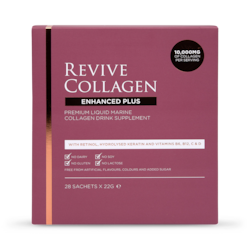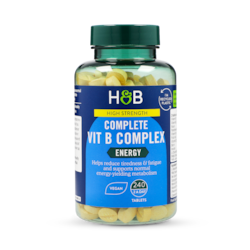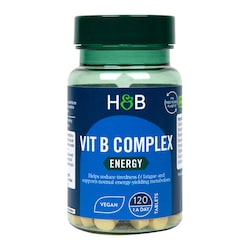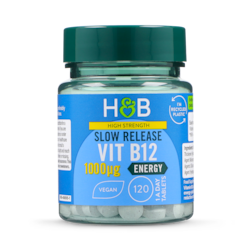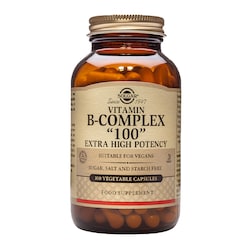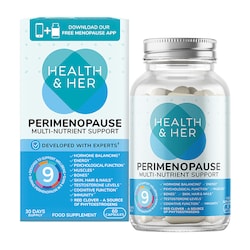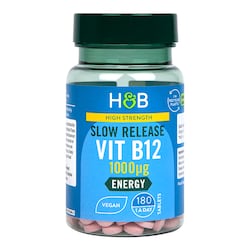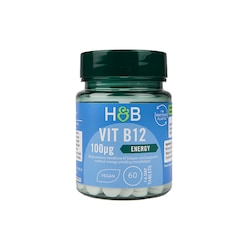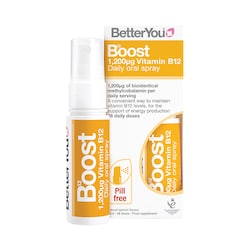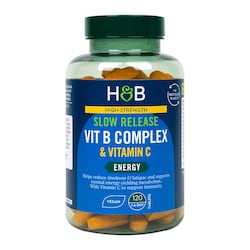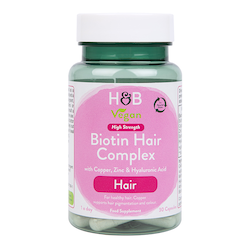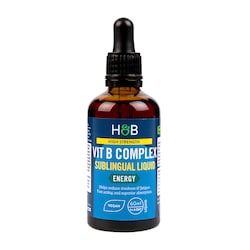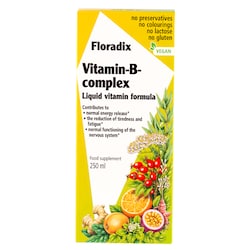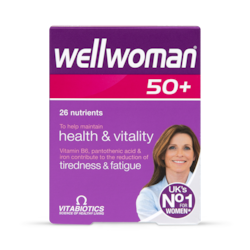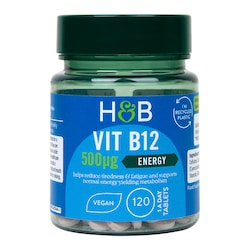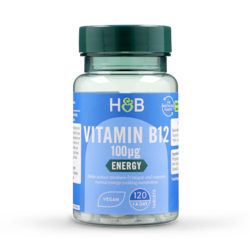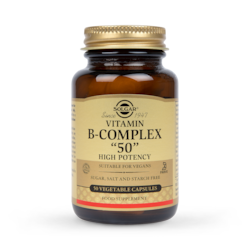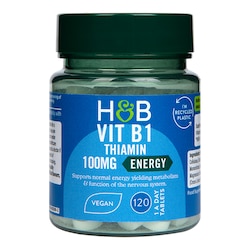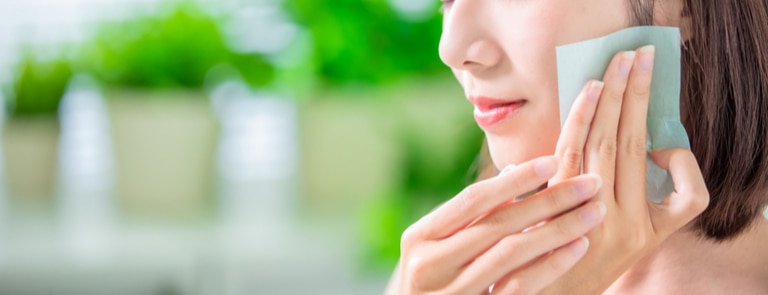15% off £30 OR 20% off £40
Code:SHOP
Biotin for hair: what’s the connection?

With so many looking for the secret to swishy hair, you might have come across biotin as the supplement to support your hair journey. Let’s get to the root of why this might be
Summary
1Does biotin help hair growth?
As well as helping to metabolise your food and make fatty acids, biotin is known to be critical for maintaining normal hair and skin…
2What are the best sources of biotin?
The vast majority of people can get their daily recommended biotin intake from the food they eat…
3Other vitamins related to normal hair
Biotin isn’t the only vitamin or mineral related to normal hair…
If you’re looking to revamp your hair care routine, you may have heard about the potentially beneficial effects of biotin.
Also known as vitamin B7, biotin is part of the vitamin B family.1 Like the rest of the B vitamins, biotin is water soluble.1 This means the body isn’t able to store it.
The body needs biotin to:2-5
- support skin health
- metabolise fats, carbohydrates and protein
- support the normal function of the nervous system
But why do people say that biotin can be good for your hair? And is there any truth in this? Keep reading to find out.
Does biotin help hair growth?
As well as helping to metabolise your food and make fatty acids, biotin is known to be critical for maintaining normal hair and skin.1 Biotin and hair growth is talked about a lot on social media, but does it actually work?
Research examining whether biotin can help with hair growth is extremely limited – there isn’t a huge amount out there aside from a few case studies with some promising outcomes. For example, one case study found that people with hair conditions, like uncomable hair syndrome, may see an improvement in hair texture.6 But, as case studies don’t provide large-scale evidence, we can’t say for definite if biotin can help with hair growth.6-8
A review of the use of biotin for hair loss across 18 different case reports and clinical trials found that all cases showed evidence of hair improvement after taking biotin supplements.9
However, research into biotin is still limited and further research is needed to confirm if it can help with hair growth.9
Biotin does help maintain normal hair, however, so it’s still important to get enough through your diet.
Biotin deficiency and hair loss
Biotin deficiency has been associated with hair loss.5 In addition, certain genetic disorders increase the risk of a severe biotin deficiency.5
Marginal biotin deficiency is fairly common during pregnancy.5 Chronic alcohol use, smoking, taking anticonvulsant medications and inflammatory bowel disease may also result in moderate biotin deficiency, as all these things individually make it difficult for the body to absorb biotin.5
As well as hair loss, symptoms of a severe biotin deficiency include:5
- depression
- lethargy
- hallucinations
- dermatitis
- seizures
- developmental delays
- hearing loss
- impaired vision
- muscle weakness
- vomiting
If you’re concerned that you might have a biotin deficiency, speak to your doctor to get your levels tested.
What are the best sources of biotin?
Although biotin is only really found in food at low levels, the vast majority of people can get their daily recommended biotin intake from the food they eat.3 Interestingly, the bacteria that naturally live in your bowel are also able to produce this essential nutrient.3
Some good food-based sources of biotin include:2,4
- organ meats
- eggs
- fish
- seeds
- nuts

You can also get biotin from supplements, though the jury’s still out on whether we really need to supplement this particular B vitamin. And, while the NHS states that there are unlikely to be any harmful effects of taking 0.9mg of biotin in supplements per day, we don’t know enough about the effects of taking too much biotin.3
To be on the safe side, it’s best to speak to your GP before you begin supplementing biotin.
You can find out more about the best biotin supplements in our article on the topic.
Other vitamins and minerals connected to normal hair
Biotin isn’t the only vitamin or mineral related to normal hair. These minerals are connected to hair health:10-13
- zinc contributes to the maintenance of normal hair. Zinc plays a role in cell division and growth, including hair follicle cells. Alopecia has also been associated with zinc deficiency, and supplementing with zinc has been found to support hair regrowth in people with alopecia10-12
- selenium contributes to the maintenance of normal hair. Selenium is an essential mineral that supports a range of functions in your body, including protein synthesis, which is where cells in your body create proteins10,11
- copper contributes to normal hair pigmentation. Copper helps give colour to your skin, hair and eyes because it’s needed for the enzyme tyrosinase, which helps produce melanin (the pigment responsible for colour)10,13
Other vitamins and minerals might also play a role in the maintenance and growth of hair, though much research is needed to determine their link to hair.
- vitamin A – consuming or supplementing too much vitamin A has been found to cause hair loss13
- iron – iron deficiency is the most common nutritional deficiency associated with hair loss. Notably, iron supplementation has been found to reverse this side effect14
- vitamin D – rickets type II is a vitamin D-dependent disorder, the symptoms of which include hair loss. Consequently, vitamin D supplementation has been associated with hair growth in those with pattern hair loss and hair loss caused by stress11
The final say
Biotin is believed to help support our hair and skin, as well as deliver several other health benefits.1
It’s possible to get all the biotin you need simply by eating a healthy and balanced diet, as biotin is available in a wide range of foods and your body naturally produces it.2-4 As a result, biotin deficiencies are rare, though they are more prevalent in pregnant women and people with genetic conditions that cause deficiency.5
If you’re planning on taking biotin supplements check with your doctor first. However, if you’re looking for other ways to help give your hair a boost, check out our other article on tips for hair growth.
The advice in this article is for information only and should not replace medical care. Please check with your GP or healthcare professional before trying any supplements, treatments or remedies. Food supplements must not be used as a substitute for a varied and balanced diet and a healthy lifestyle.
- Ali MA, et al. Dietary vitamin B complex: Orchestration in human nutrition throughout life with sex differences. Nutrients. 2022;14(19):3940. https://doi.org/10.3390/nu14193940
- Hanna M, et al. B vitamins: Functions and uses in medicine. Perm J. 2022;26(2):89–97. https://doi.org/10.7812/tpp/21.204
- NHS. B vitamins and folic acid - Vitamins and minerals [Internet]. [cited 2024 Jun 21]. Available from: https://www.nhs.uk/conditions/vitamins-and-minerals/vitamin-b/
- Jean Guy LeBlanc. B-complex vitamins: Sources, intakes and novel applications. Cerela-Conicet, Argentina: IntechOpen; 2022. Available from: https://www.intechopen.com/books/11021
- Perry CA, Butterick TA. Biotin. Adv Nutr. 2024;15(7):100251. https://doi.org/10.1016/j.advnut.2024.100251
- Drivenes JL, et al. Uncombable hair improved by biotin. JEADV Clin Pract. 2023;2(2):313–15. https://doi.org/10.1002/jvc2.105
- Benke PJ, et al. Biotin and acetazolamide for treatment of an unusual child with autism plus lack of nail and hair growth. Pediatr Neurol. 2018;79:61–4. https://doi.org/10.1016/j.pediatrneurol.2017.10.013
- Walth CB, et al. Response to: “Rethinking biotin therapy for hair, nail, and skin disorders.” J Am Acad Dermatol. 2018;79(6):e121–4. https://doi.org/10.1016/j.jaad.2018.07.055
- Patel DP, Swink SM, Castelo-Soccio L. A Review of the Use of Biotin for Hair Loss. Skin Appendage Disorders. 2017;3(3):166–9. https://www.karger.com/Article/FullText/462981
- European Commission. Food and Feed Information Portal Database: Health Claims [Internet]. [cited 2025 Feb 13]. Available from: https://ec.europa.eu/food/food-feed-portal/screen/health-claims/eu-register
- Almohanna HM, et al. The role of vitamins and minerals in hair loss: A review. Dermatol Ther. 2019;9(1):51–70. https://doi.org/10.1007/s13555-018-0278-6
- EFSA. Scientific Opinion on the substantiation of health claims related to zinc and maintenance of normal skin (ID 293), DNA synthesis and cell division(ID 293), contribution to normal protein synthesis (ID 293, 4293), maintenance of normal serum testosterone concentrations (ID 301),“normal growth” (ID 303), reduction of tiredness and fatigue (ID 304), contribution to normal carbohydrate metabolism (ID 382), maintenance of normal hair (ID 412), maintenance of normal nails (ID 412) and contribution to normal macronutrient metabolism (ID 2890) pursuant to Article 13(1) of Regulation (EC) No 1924/2006. EFSA Journal. 2010; 8, 10. https://efsa.onlinelibrary.wiley.com/doi/epdf/10.2903/j.efsa.2010.1819
- EFSA. Scientific Opinion on the substantiation of health claims related to copper and protection of DNA, proteins and lipids from oxidative damage (ID 263,1726), function of the immune system (ID 264), maintenance of connective tissues (ID 265, 271, 1722), energy-yielding metabolism (ID 266), function of the nervous system (ID 267), maintenance of skin and hair pigmentation (ID 268, 1724), iron transport (ID 269, 270, 1727), cholesterol metabolism (ID 369), and glucose metabolism (ID 369) pursuant to Article 13(1) of Regulation (EC) No 1924/20061. EFSA Journal 2009; 7(9):1211. https://efsa.onlinelibrary.wiley.com/doi/pdf/10.2903/j.efsa.2009.1211
- VanBuren CA, Everts HB. Vitamin A in Skin and Hair: An Update. Nutrients. 2022 Jul 19;14(14):2952. https://pmc.ncbi.nlm.nih.gov/articles/PMC9324272/
- Trost LB, Bergfeld WF, Calogeras E. The diagnosis and treatment of iron deficiency and its potential relationship to hair loss. Journal of the American Academy of Dermatology. 2006 May;54(5):824–44. https://pubmed.ncbi.nlm.nih.gov/16635664/



